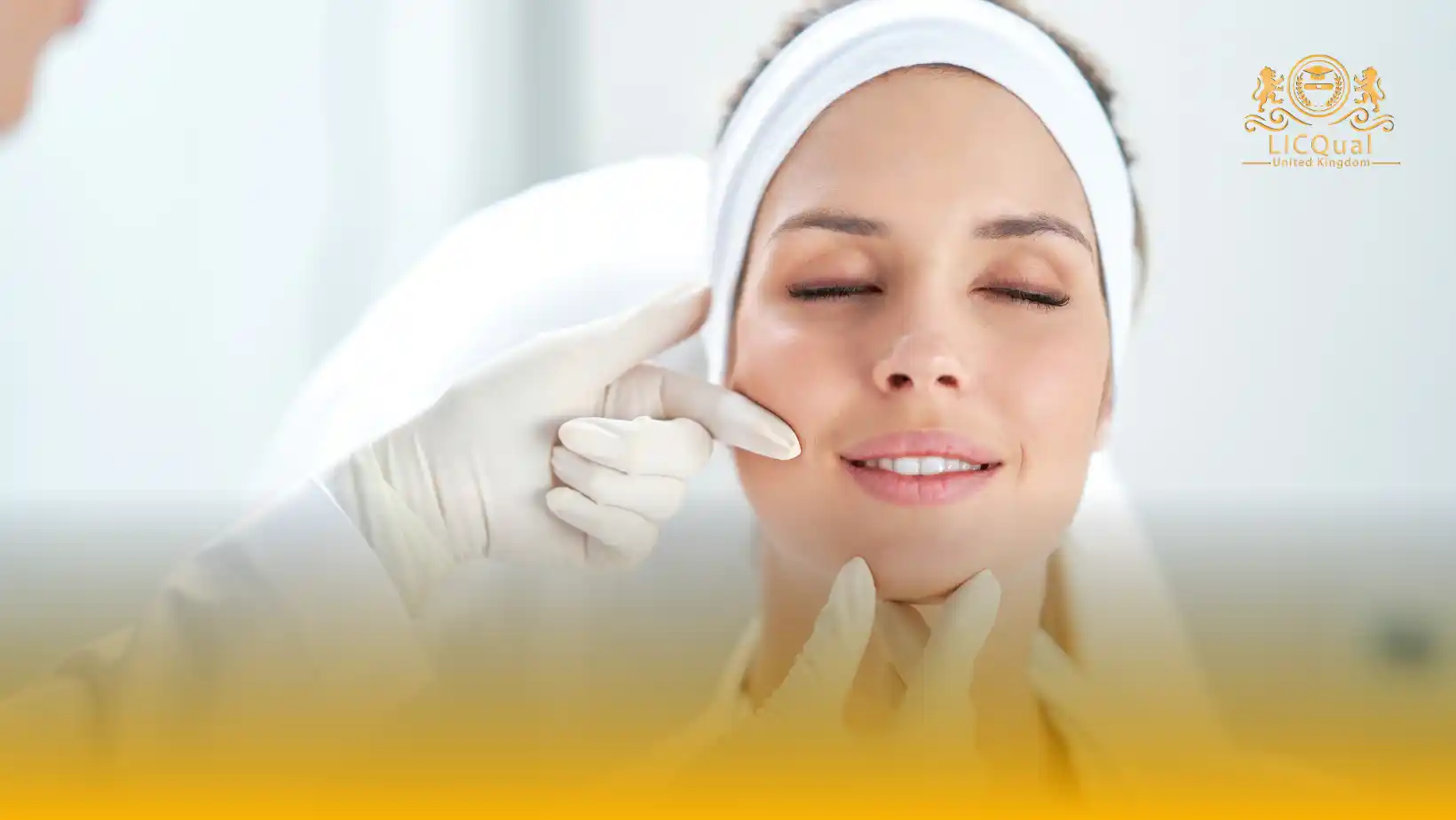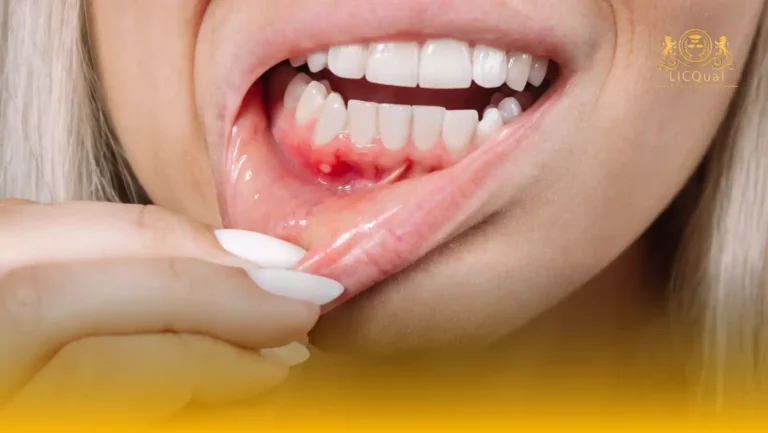The LICQual Level 3 Diploma in Aesthetic Dermatology (Dip Aesthetic Dermatology) is a specialised qualification designed for healthcare professionals and practitioners who wish to advance their expertise in aesthetic dermatology. This course is ideal for learners who are already working in clinical or medical environments and seek to enhance their career prospects, expand their knowledge base, and increase their Continuing Professional Development (CPD). It is not intended for fresh candidates but rather for professionals committed to achieving excellence in the field of aesthetic medicine.
This comprehensive diploma provides learners with in-depth understanding of advanced dermatological treatments, skin health, and non-surgical aesthetic procedures. Learners will develop practical skills alongside theoretical knowledge, ensuring a well-rounded education that can be applied directly in professional practice.
Centres delivering this qualification are required to maintain the highest standards of training. This includes having competent and qualified staff, as well as access to all the necessary materials, resources, and facilities to support effective learning and successful outcomes. Such rigorous standards ensure that every learner receives high-quality education and is fully prepared to apply their skills safely and professionally within the aesthetic dermatology sector.
By completing the LICQual Level 3 Diploma in Aesthetic Dermatology, learners can demonstrate their commitment to professional growth, elevate their career profile, and gain recognised credentials that reflect both competence and dedication to excellence in aesthetic dermatology.
Course Overview
Qualification Title
LICQual Level 3 Diploma in Aesthetic Dermatology (Dip Aesthetic Dermatology)
Total Units
6
Total Credits
60
GLH
240
Qualification #
LICQ2200911
Qualification Specification
To enroll in the LICQual Level 3 Diploma in Aesthetic Dermatology (Dip Aesthetic Dermatology), applicants must meet the following criteria:
|
Qualification# |
Unit Title |
Credits |
GLH |
|---|---|---|---|
|
LICQ2200911-1 |
Introduction to Aesthetic Dermatology |
10 |
40 |
|
LICQ2200911-2 |
Skin Assessment and Consultation |
10 |
40 |
|
LICQ2200911-3 |
Non-Surgical Aesthetic Treatments |
10 |
40 |
|
LICQ2200911-4 |
Advanced Skin Therapies |
10 |
40 |
|
LICQ2200911-5 |
Professional Practice and Ethics |
10 |
40 |
|
LICQ2200911-6 |
Clinical Case Studies and Practical Application |
10 |
40 |
By the end of this course, learners will be able to:
Unit 1: Introduction to Aesthetic Dermatology
- Understand the scope and principles of aesthetic dermatology.
- Describe the structure, function, and physiology of the skin.
- Recognise different skin types, conditions, and the effects of ageing.
- Identify professional roles and responsibilities in aesthetic practice.
- Explain the importance of maintaining safety and hygiene standards.
Unit 2: Skin Assessment and Consultation
- Conduct thorough patient consultations and collect relevant medical history.
- Identify contraindications, risk factors, and suitability for treatments.
- Assess skin conditions accurately using standard dermatological tools.
- Develop personalised treatment plans based on assessment outcomes.
- Communicate effectively with patients about procedures, risks, and expectations.
Unit 3: Non-Surgical Aesthetic Treatments
- Demonstrate knowledge of botulinum toxin, dermal fillers, and chemical peels.
- Apply safe and effective techniques for non-surgical treatments.
- Maintain infection control, hygiene, and clinical safety protocols.
- Evaluate treatment outcomes and manage patient expectations.
- Recognise and respond to adverse reactions appropriately.
Unit 4: Advanced Skin Therapies
- Understand the principles and applications of laser, light-based therapies, and microdermabrasion.
- Identify indications, contraindications, and safety requirements for advanced treatments.
- Demonstrate practical competency in administering therapies.
- Monitor and manage complications during and after procedures.
- Maintain accurate records of procedures and patient progress.
Unit 5: Professional Practice and Ethics
- Apply legal and ethical principles in aesthetic dermatology practice.
- Maintain professional standards and patient confidentiality at all times.
- Keep accurate clinical records and documentation.
- Understand the importance of professional development and CPD.
- Demonstrate decision-making aligned with industry best practices and ethical standards.
Unit 6: Clinical Case Studies and Practical Application
- Analyse clinical case studies to develop problem-solving skills.
- Apply theoretical knowledge to practical scenarios safely and effectively.
- Demonstrate competency in skin assessment, planning, and treatment delivery.
- Evaluate clinical outcomes and reflect on practice for continuous improvement.
- Develop confidence and professionalism in real-world aesthetic dermatology settings.
The LICQual Level 3 Diploma in Aesthetic Dermatology (Dip Aesthetic Dermatology) is designed for healthcare professionals, medical graduates, and practitioners who want to specialize in skin health, cosmetic dermatology, and non-surgical aesthetic treatments. This CPD-accredited diploma is ideal for those seeking international recognition, career advancement, and flexible online training that equips them with evidence-based knowledge in skin rejuvenation, anti-aging procedures, and advanced dermatology care.
1. Medical Doctors and Physicians
- Strengthen diagnostic and treatment skills in aesthetic dermatology
- Gain advanced knowledge of cosmetic skin procedures and therapies
- Apply evidence-based approaches to skin rejuvenation and anti-aging
- Improve patient outcomes with specialized dermatology training
- Enhance professional credibility with an accredited diploma
2. Dermatologists and Skin Specialists
- Deepen expertise in aesthetic and cosmetic dermatology treatments
- Learn advanced protocols for chemical peels, laser therapy, and injectables
- Expand clinical scope with a Diploma in Aesthetic Dermatology (Dip Aesthetic Dermatology)
- Access CPD-accredited training for career progression
- Gain recognition as a specialist in aesthetic skin care
3. Nurses and Clinical Practitioners
- Build skills in patient-centered aesthetic dermatology care
- Learn to support cosmetic procedures and post-treatment recovery
- Strengthen knowledge of non-surgical skin rejuvenation techniques
- Collaborate effectively with dermatologists and cosmetic doctors
- Add a specialized qualification to enhance career opportunities
4. Medical Graduates and Postgraduate Students
- Gain a strong foundation in aesthetic dermatology for specialization
- Build competitive advantage in postgraduate medical applications
- Access flexible online learning while continuing clinical training
- Learn from expert-led modules aligned with global standards
- Earn a diploma that strengthens both academic and professional profiles
5. Aesthetic Practitioners and Cosmetic Professionals
- Develop expertise in non-invasive skin treatments and anti-aging care
- Learn advanced techniques in fillers, Botox, and skin rejuvenation
- Strengthen clinical practice with evidence-based dermatology knowledge
- Gain recognition with a CPD-accredited aesthetic dermatology diploma
- Enhance employability in aesthetic clinics and cosmetic centers
6. International Healthcare Professionals
- Designed for global learners seeking UK-accredited qualifications
- Access flexible online study from anywhere in the world
- Gain recognition with an internationally respected diploma
- Learn best practices in aesthetic dermatology aligned with global standards
- Enhance employability in hospitals, clinics, and global health organizations
7. Professionals Seeking Career Advancement
- Ideal for those aiming to specialize in aesthetic dermatology
- Boost career growth with a niche medical qualification
- Gain recognition for advanced expertise in cosmetic skin care
- Open pathways to leadership, teaching, and research roles
- Strengthen your CV with a Diploma in Aesthetic Dermatology (Dip Aesthetic Dermatology)
To deliver the LICQual Level 3 Diploma in Aesthetic Dermatology effectively and maintain high-quality training standards, centres must meet the following requirements:
- Qualified and Competent Staff: Centres must employ experienced, certified, and knowledgeable instructors with relevant qualifications in aesthetic dermatology and clinical practice.
- Training Facilities: Centres should provide fully equipped classrooms and clinical spaces suitable for both theoretical teaching and practical demonstrations.
- Access to Clinical Equipment and Materials: Learners must have access to all necessary materials, tools, and aesthetic treatment equipment, including skin assessment tools, laser devices, chemical peel supplies, and injection equipment where applicable.
- Health and Safety Compliance: Centres must adhere to current health, safety, and hygiene regulations, ensuring a safe learning environment for learners and staff.
- Assessment and Support Resources: Centres must provide appropriate learning materials, assessment tools, and guidance to support learner success and competence development.
- Continuous Professional Development (CPD) Support: Centres should encourage learners’ ongoing professional growth by offering CPD opportunities and resources aligned with industry best practices.
- Quality Assurance and Monitoring: Centres must maintain robust quality assurance systems to monitor training delivery, learner progress, and overall programme effectiveness.
Meeting these centre requirements ensures that learners receive high-quality education, hands-on experience, and professional support, preparing them to excel in the field of aesthetic dermatology and achieve recognised professional qualifications.
Assessment and Verification
All units within this qualification are subject to internal assessment by the approved centre and external verification by LICQual. The qualification follows a criterion-referenced assessment approach, ensuring that learners meet all specified learning outcomes.
To achieve a ‘Pass’ in any unit, learners must provide valid, sufficient, and authentic evidence demonstrating their attainment of all learning outcomes and compliance with the prescribed assessment criteria. The Assessor is responsible for evaluating the evidence and determining whether the learner has successfully met the required standards.
Assessors must maintain a clear and comprehensive audit trail, documenting the basis for their assessment decisions to ensure transparency, consistency, and compliance with quality assurance requirements.







